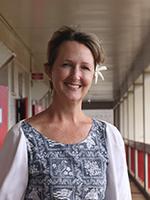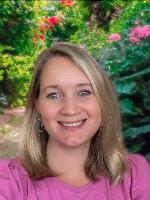
Event Information

Content & Engagement: Our poster presentation will provide an overview of eco-mapping and its relevance to student voice, community engagement, digital literacy, and ecojustice.
The audience will engage with the poster in a number of ways, as the poster presentation will be interactive. For example, attendees may access and view the live eco-map with our QR code. They will also be able to view and touch several of the project artifacts that will be on display. The artifacts we bring to the poster presentation will showcase the work that went into the students' eco-mapping, as well as the ecojustice work they participated in throughout the year.
Our presentation will also include a quick poll using audience response system (e.g., Mentimeter, Slido)
Question: "How familiar are you with using digital tools for community-based projects in schools?"
Process: Participants use their devices to respond; results displayed in real-time
The visual & text components of our poster presentation will cover the following content:
Importance of diverse perspectives in community mapping
Importance of engaging students in authentic literacy experiences in their local communities in support of eco-social justice efforts.
Techniques for eliciting and incorporating counter-narratives
Definition and purpose of eco-mapping
Connection to ISTE standards
A step-by-step guide to getting started with Google mapping in the classroom.
Our poster will engage attendees in 3-5 minutes of discussion about the topics described above and 3-5 minutes of interaction with the project artifacts and eco-map example.
Braidotti, R. (2019). Posthuman Knowledge. Polity.
Curwood, J. S., & Gibbons, D. (2010). Just like I have felt”: Multimodal counternarratives in youth-produced digital media. International Journal of Learning and Media, 1(4), 59-77.
Frith, J., & Richter, J. (2021). Building participatory counternarratives: Pedagogical interventions through digital placemaking. Convergence, 27(3), 696-710.
Kahn, R. V. (2010). Critical pedagogy, ecoliteracy, & planetary crisis: The ecopedagogy movement (Vol. 359). Peter Lang.
Victor, K. (2024). Relational literacies for more-than-English Worlds. English Journal, 113(5), 87-95.
Aina-Based Learning the 21st Century: Brandon Ledward at TEDxManoa (youtube link)

